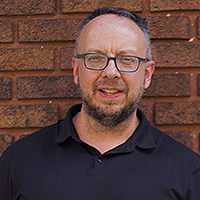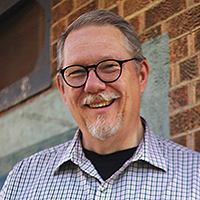By: Stephen Kriss
This summer our Mosaic Board, along with some staff and committees, participated in training with Carlos Romero (long-time former Executive Director of Mennonite Education Agency) on the Intercultural Development Inventory (IDI). The IDI is an internationally recognized tool used to gauge individual and group intercultural levels. The gauge ranges from denial and minimization to acceptance and adaptation. It provides vocabulary and a framework for sometimes difficult conversations around intercultural transformation.
As a core priority and reality of Mosaic, we continue to discern and discover what it means to be intercultural. We aim to stay rooted in the Biblical narrative of the Spirit’s work, evident in the Gospels and the early life of the church.
In our training, Romero pointed out that Mosaic has spent a lot of time talking about what we have in common. We have yet to find ways to discover, unveil, and name our differences. This is part of the intercultural journey.
Romero acknowledged that we are a community that officially formed in 2020 and is still developing a sense of shared identity. We have only met fully in-person with our delegates once. We are still learning what it means to include communities from Vermont to California and Florida with our Pennsylvania roots.
In her book, The Space Between Us, Betty Pries highlights Patrick Lencioni’s metaphor of “artificial harmony.” In this reality, differences remain under the surface and undiscussed. There are multiple reasons this happens.
In Mennonite and Protestant church settings, I believe we hold “artificial harmony” not because we fear conflict as much as we fear the outcome of conflict, which has often meant that we split and sever relationships. If we had healthy models of how to acknowledge, embrace, and work through differences together, we might not be so conflict-averse.
When we don’t regularly work through conflict, the outcomes are often separation, leaving the room, scapegoating, and demonization. In our context of cultural polarization, we walk away from each other rather than give the Spirit time and space to work.
Our Pathways strategic planning process has uncovered that we need to spend time cultivating the practice of talking about our differences and navigating conflict without allowing only the loudest voices to be heard while others withdraw to avoid conflict.
If we knew that our commitments to each other would keep us together even in disagreement, we would be better able to manage conflicts and interpersonal storminess. This will require both strategic and Spirit work, utilizing our hearts, heads, and guts.
In contrast to artificial harmony, Safwat Marzouk, in his book Intercultural Church, calls for “just diversity.” We are not always aware of the ways the early church struggled and worked at this … from Jesus’ boundary-breaking, to the martyrdom of Stephen (who was named to a role to address an issue of equity based on his qualifications and ethnic identity), to the struggles of keeping kosher, the roles of women, the realities of slavery, and the ethnic divisions of Jews and Gentiles … it was constant negotiation as the Good News crossed boundaries into new communities.
Conversation about our cultural, theological, ethnic, language, political, and personal differences will be part of seeking “just diversity” within Mosaic. This is God’s work with us, strategic and holy, hopeful and hard.

Stephen Kriss
Stephen Kriss is the Executive Minister of Mosaic Conference.













